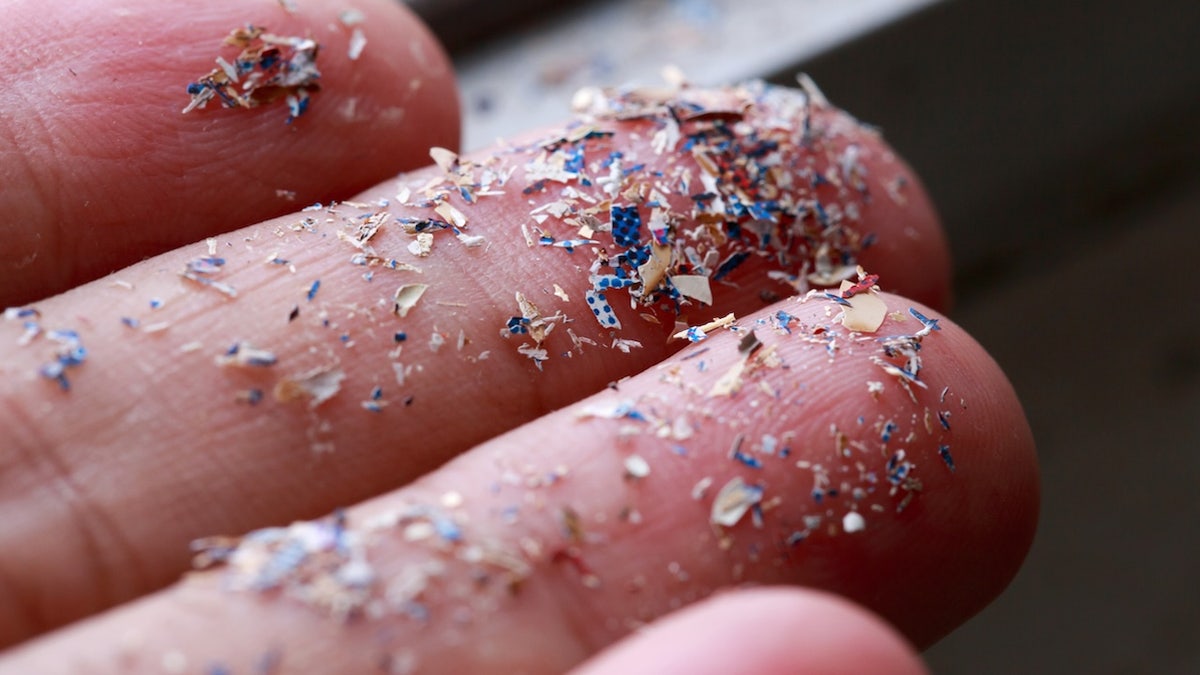The chemicals found in the plastic are associated with a lot of health risk – and now the mortality rate of heart disease has been added to the list.
In analysis of population surveys, researchers in NYU Langon Health have discovered that the daily exposure of chemicals in ordinary household items can cause more than 356,000 heart disease in 2018.
This number is more than 13% of worldwide heart-related deaths for people between the ages of 55 to 64 years.
The study finds microplastic evidence in the brain and other organs
According to the NYO press release, the survey published in the Lancet EBOAMEDISIN Journal on April 23, found the risks of chemicals called Fatlets, which were found in cosmetics, detergents, solvents, plastic pipes, bug replets and other products.
The chemicals found in the plastic are associated with a lot of health risk – and now the mortality rate of heart disease has been added to the list. (Estock)
In this study, the focus was a specific type called DI -2 -athexil Fattle (DHP), which is used to create soft, more flexible plastic like food containers and treatment equipment, in the notice.
DHP is associated with inflammation in the arteries of the heart, which makes people more sensitive for heart attack or stroke.
Chewing gum can be released from thousands of microplastic saliva, said the study
To determine the level of DHP exposure, researchers analyzed a few dozen population surveys of 200 countries and regions.
A research group in the United States received information from the Institute for Health Metrics and Evaluation, which collected global treatment data to detect public health trends.
“Our results refers to the urgent need of world rules to reduce the contact of these toxins.”
“BS, BS, BS, BS, BS, BS, NYU Growsman School of Medicine, in the release of these chemicals presents these chemicals a remarkable danger to human health.
Middle East, South Asia, East Asia, and the Pacific are among the highest heart disease tolls connected to the fattelets.

Daily exposure to chemicals on ordinary family items can only cause more than 356,000 heart disease death in 2018. (Estock)
“Our results refers to the emergency need for global regulations to reduce these toxins, especially in the region affected by the use of fast industrialization and plastic,” Gym G Henrick, MD, NYU GRANSMAN School of Medicine’s Professor Jim G -Hendrick.
According to Dr. Jasdeep Dalawari, a regional chief medical officer of the Illino-based interventional cardiologist and the Injenovis Health Organization, Dr. Jasdeep Dalawari is a known cause of coronary arterial disease.
Wonderful link to share blood pressure and dementia risk, offering study
“Our bodies reveal chemicals and hormones that guide the arteries to the opening, closing or changing the arteries,” Dalwari, who was not involved in research, told Fox News Digital.
“This study suggests that microplastics can interfere with those internal signals, so the arteries do not perform the way they should.”

The research was found in the risk of chemicals called Fatlets, which are found in cosmetics, detergents, solvents, plastic pipes, bug repathers and other products. (Estock)
“Microplastics we are widely present in different types of products every day and it is important to understand their long -term effects on human health,” he adds.
Renato Apollo, Medical Director of Cardiac Catheater of Haclandian Meridian Jersey Shore University, has agreed that man -made plastic products have long been known and health risks.
This strange dental practice can spread the risk of heart health, experts warned
“They often use high engineering chemicals where the target is not quality and protection, but rather for cost-effectiveness and convenience,” this study was not involved in this study, Fox News Digital was not involved in this study.
The doctor shared that he stopped using non-stick pans long ago and mostly used glass storage and avoid eating and drinking plastic containers.
Restrictions and future studies
Apollo, however, mentions that the “longitudinal and observational” nature of the study comes with restrictions.
“It is commonly used to visit whether there is any connection between exposure and health risks, which are then used to study the subject in a more controlled fashion,” Apolito, who was not involved in research, told Fox News Digital.
“It cannot control for unknown changes in the lifestyle among the people who follow.”
Click here to get Fox News app
Senior author Trasand also indicated the possible limitations.
The analysis does not establish that DHP causes heart disease and the risk of higher deaths does not consider other types of fatlets, he said.
The study did not include the death rate of other age groups, the doctor mentioned, which means the number of overall deaths “probably much”.
Looking forward, researchers are planning to investigate how the fatal exposure affects the death rate.
Click here to sign up for our health newsletter
They will also measure the possible role of chemicals in other health concerns.
“These studies are generally used to explain the cause and effect that is used to study,” said Apolito. “As a result, the FDA and other policy makers may ban or ban the use of these national products.”
“Microplastics are widely present in various products we use every day and it is very important to understand their long -term effects on human health” “
The research was funded by the National Health Institute.
Dalawari suggested that researchers may want to look at other contributing causes, including air pollution, which has been proven to be a “novel of obsolete risk” for coronary diseases.
For further health articles, see www.foxnews.com/health
“The intersection of pollution, control and genetic trends provides a complex landscape and further research to unveil these connections to enhance these connections to enhance the way to the more informed public health policies and preventive systems,” he added.
Leave a Reply